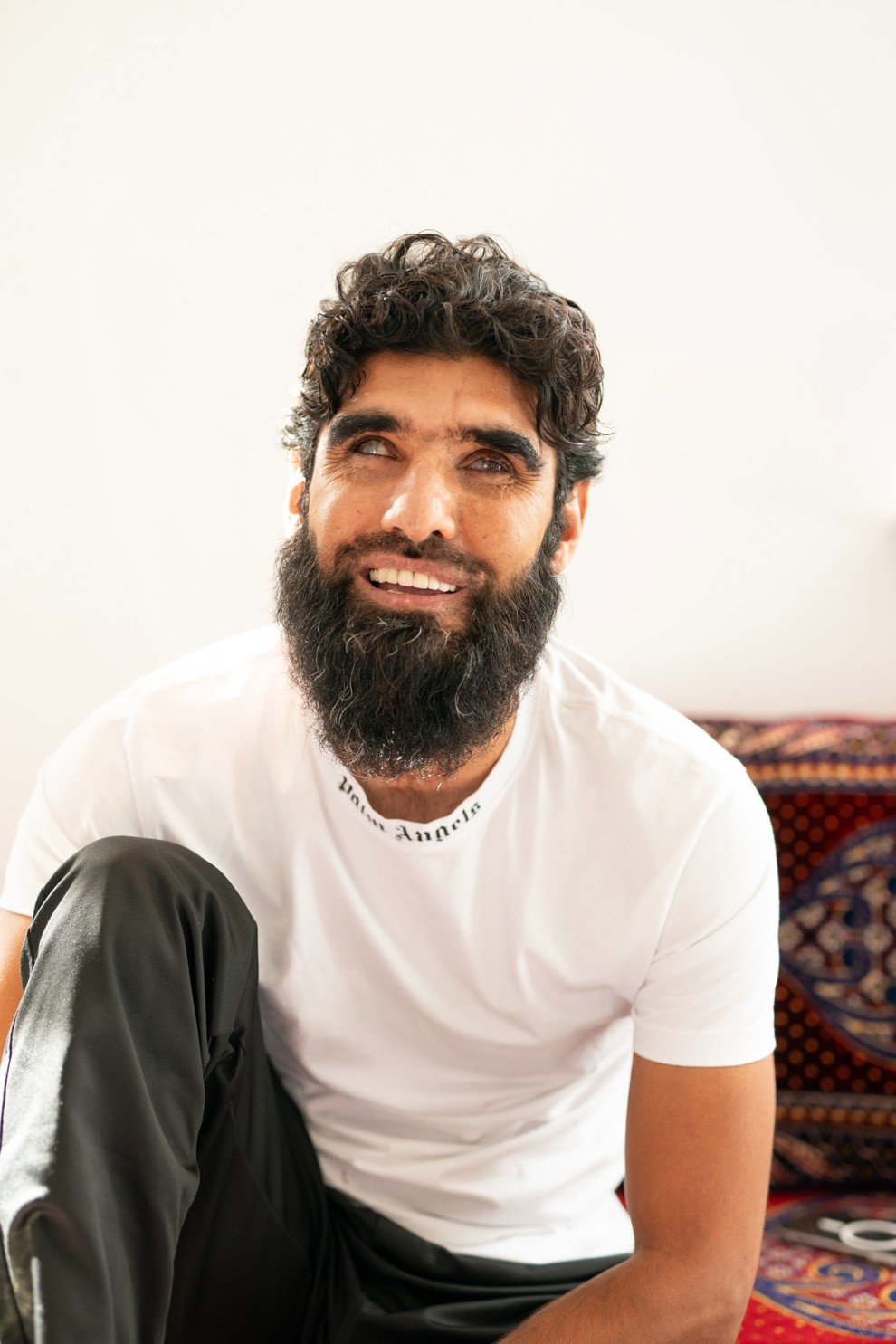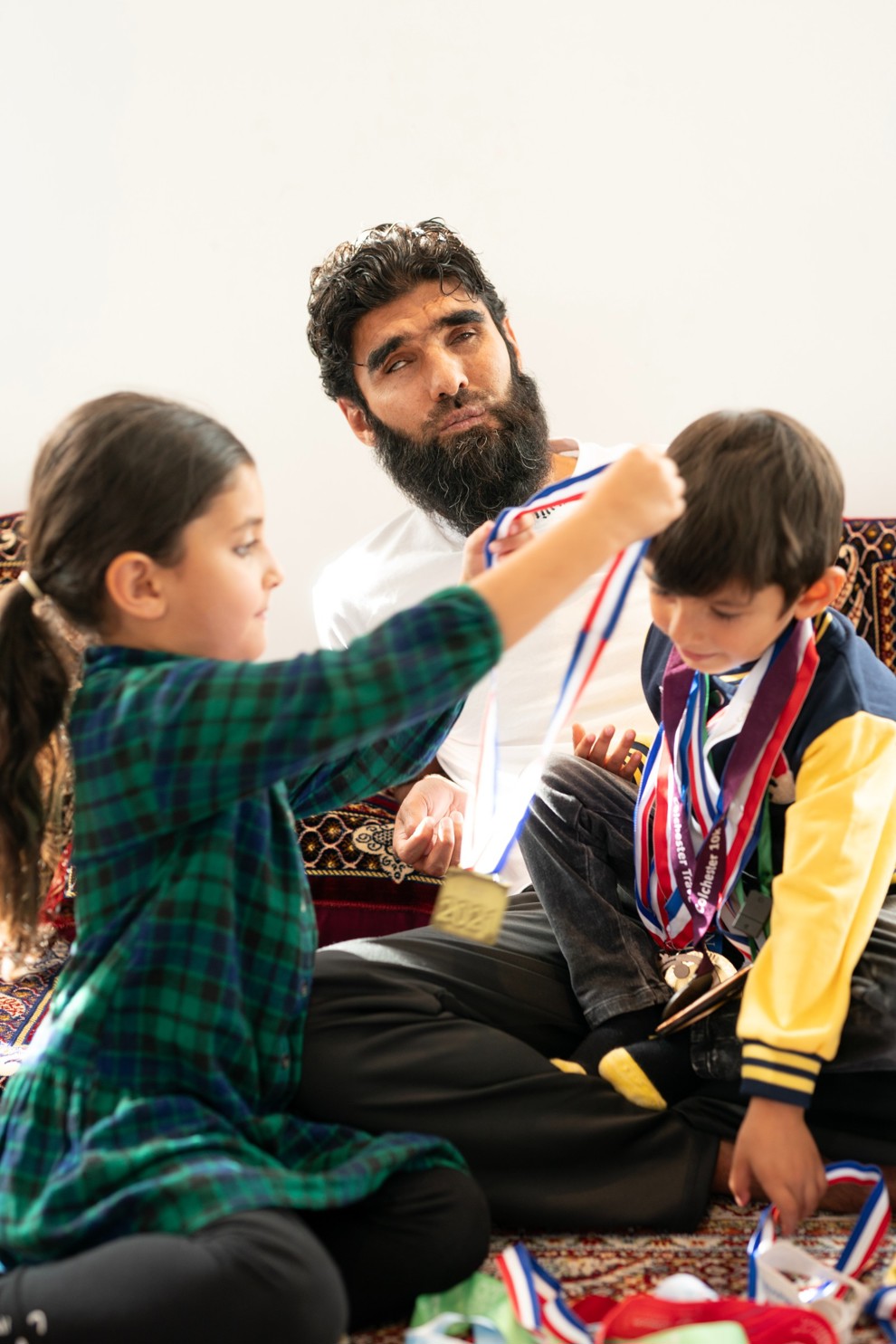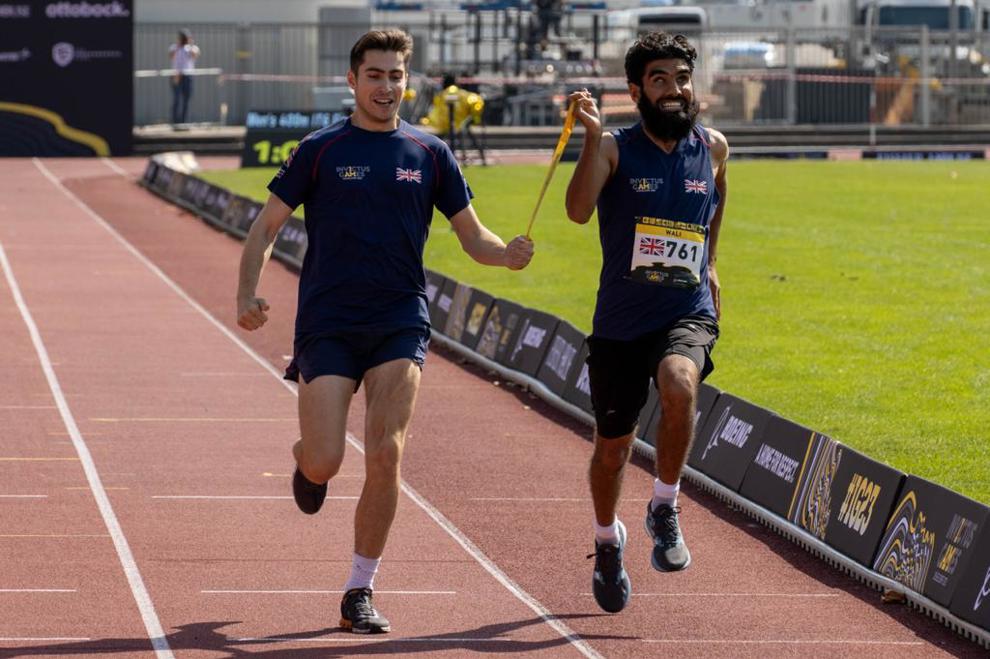WALI NOORI FEARED WHAT LIFE HELD IN STORE FOR HIM WHEN HE LOST HIS SIGHT WORKING AS AN INTERPRETER IN HELMAND. THEN HE MET HIS WIFE, MOVED TO THE UK AND BECAME A BLESMA MEMBER.
Wali Noori is an Afghan national who worked as an interpreter and cultural adviser for the British Army during the war in Afghanistan. He was blinded by an IED blast in 2009 and was relocated to the UK in 2016. He became a Blesma Member in 2022 and, earlier this year, represented the UK at the Invictus Games, where he won four gold medals.
I invest every second of my life in trying to improve. I’ve never surrendered to my difficulties.
Can you tell us a bit about your life before you worked with the British Army? I was born, and grew up, in Kabul. I was born into war because the Russians had invaded Afghanistan back then. I finished my studies and wanted to go to university, but I needed to help feed my family so I joined the British Army as a translator and cultural adviser. I had studied English a lot, I loved the language and was good at it.
What was it like being part of the conflict in your homeland? I wanted to support my family, help my people and help the British. My job was to act as a vital bridge between the British Army, the Afghan forces and the local civilians. There would have been so many more problems without the translators, it was a very important job. We did whatever was needed. I was asked if I would go to Helmand Province, and I said yes. I knew that if I agreed to go there, I had to accept that I might be injured or die. It was like hell: a lot of ambushes and a lot of killing, fighting every day with the Taliban.


How were you injured? We were on patrol in Helmand when I stood on an IED. I remember most of it. I was thrown up into the air and then came crashing back down to the ground. I thought it was my last day of life, my doomsday. I was ready to die, but it felt like a dream, like it wasn’t real. I had blood all over my face and lots of injuries from all the shrapnel. I lost 28 teeth. The fighting was still going on, but the world had gone black because I had been blinded. My breathing stopped. I put my hand down my throat, pulled a piece of shrapnel out and started to breathe again. I was helicoptered out, and I fell into a coma. When I woke up again I was very worried.
What happened next? Initially, I went to Kabul, then to Bagram Hospital and airbase, where the Americans did some good treatment for me on my facial wounds and fractures. I couldn’t talk and was breathing through a tube from my neck. I was there for a month. After that, I was discharged. I was able to be fitted with artificial teeth and I spent a lot of time in hospitals in both India and Pakistan to see if they could save my sight, but it didn’t work.
How did you adapt to your new life? It was not easy. I was facing a lot of difficulty. I used to love running, but I thought my running days were over. I was a single man. I ended up living back with my family in Afghanistan. It is not a suitable country to live in if you are disabled or blind. You are not set up to cross the road or anything like that. So it was a difficult time, trying to work out how to come to terms with my injuries and how I was going to get through life. Then, in 2012, I met my wife-to-be at a friend’s wedding, and we now have three kids; two girls and a boy. I’ve never seen my children or my wife’s lovely faces. That would be my one great wish in life.
How did you come to be living with your family in the UK? In 2014, I was informed by the British Government that I was eligible to come to the UK with my family. It was great news, I wanted to come and try to achieve something here. It took two long years to sort out all the necessary paperwork, and I arrived in 2016. I came to Colchester and I really like it here. It is a nice place and I have made friends. It’s a military town and I have found lots of people who can help me. I do my running training at the Army track here. It took a while for my family to settle, but now they are very happy. My life had been war, war, war since birth until I came to the UK.
Life after injury

I have never seen the faces of my children or my wife. That would be my great wish in life.
You competed in the Invictus Games… I always want to move forwards, I never look back in life. I like going to the gym, swimming, doing lots of hill running and track training. I waited for five years to get selected for the Invictus Games. I was so proud to get there, and when I did, I knew I had to do everything to win. I got four gold medals – in the 100m, 200m, 400m and 1500m. I wanted to show I could do something for the UK in sport just as I did in the military, but it was not easy.
You’ve become a motivational speaker, talking in schools about your injuries and recovery. You have a positive attitude… I just make sure I never give up. Some people give up when they don’t achieve what they want, but success is not a sprint, it is a marathon. It takes time and dedication to achieve. Your journey is unique and important. It is about consistent effort and hard work. Rome wasn’t built in a day, and dreams need planning and patience. I invest every second of my life in trying to improve. I’ve never surrendered to my difficulties. Living without sight, I find it easy. I knew the risks of joining the Army. People told me: ‘Wali, you will die’. So I accepted anything bad that could happen. That’s why I could adjust to a life with problems.
How does running make you feel? I love running, it makes me feel very happy. When I am out running, all my problems go away. If I have a headache, I go running and the headache goes. If I am stressed, a run makes the stress and pain go. I love every type of running. I am fast but I’m an all-rounder, I did the London Marathon in 2019, and I also like half marathons and 10ks. Including Invictus, I have won 19 medals for running and three for swimming.
How did you get involved with Blesma? I was accepted as a Member last year after Blesma changed its admissions policy. The Association does amazing work and supports lots of people. It has even funded a treadmill for me.
What are your hopes for the future? I would love to get to compete in the Paralympic Games in Paris next year. We are looking into whether that might be possible. I am discussing it with my coaches and management at the moment, so I hope I am able to make it. This is only the start of my journey. I want to keep inspiring others and show people that disability doesn’t stop you from achieving great things
We can help
We are dedicated to assisting serving and ex-Service men and women who have suffered life-changing limb loss or the use of a limb, an eye or sight. We support these men and women in their communities throughout the UK. Click the link below to find out the different kinds of support we offer.
Get Support
Leave a comment
Join fellow Members and supporters to exchange information, advice and tips. Before commenting please read our terms of use for commenting on articles.